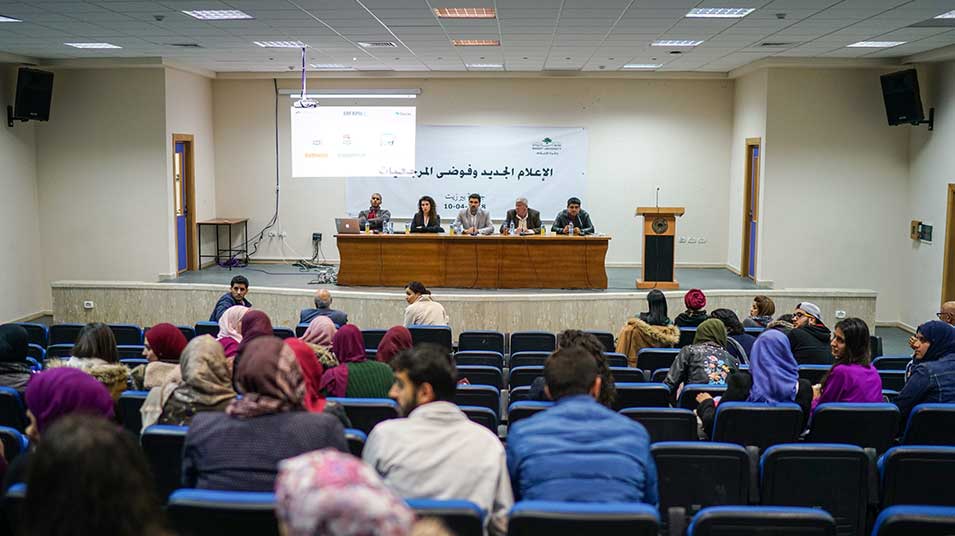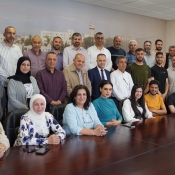Department of Media symposium reflects changes in the new media age
Media professors and experts from Palestinian universities and Arab media organizations shed light on practices used in the in the digital media age in a symposium entitled “The New Media and the Confusion of Sources,” held on Birzeit University’s campus.
The symposium, organized by the Department of Media at Birzeit University on April 10, 2018, featured prominent media specialists and professors such as Professor Said Ayyad, chair of the Department of Arabic Language and Media at Bethlehem University; Professor Walid Shurafa, associate professor of Media at Birzeit University; Mona Haddad, founder of AppMahal and the third top woman entrepreneur in the Arab world – per Forbes Middle East – and Hassan Jaddeh, manager of Social Studio.
Ayyad, during his talk, addressed the confusion and disorder in media publishing on social media platforms, saying that there are three main types of confusion on such platforms: “Informational confusion, professional confusion, and contradictory confusion.”
“I’ve followed about 40 pages on social media platforms,” said Ayyad. “and I’ve found that some Palestinian media organizations have fallen in the pitfall of relying on social media as a main source of information, which confuses readers and disrupts the information process. In addition to that, there are some actors who use social media platforms to advance their own agenda, spread their ideologies, and negatively affect people’s outlooks.”
Shurafa noted, in his keynote address, that the conflict on social media platforms presents itself as one between “who we want to be and who we are,” adding that people usually present the versions of themselves that they aspire to be on social media.
“The messages usually derived from social media are seducing and arousing in nature, with the broader picture presented as one that welcomes sating sexual and narcissistic desires that represent oneself, and one that welcomes grooming that sates the collective needs of the group,” remarked Shurafa.
In her talk, Haddad explored fake and dishonest content and its aims on social media platforms, adding that it is in the interest of Facebook to keep such content available, as it brings in more “clicks and views.”
The best marketing on Facebook, commented Haddad, is the result of the so-called social influencers and brand ambassadors, who base their interactions with the community on the trends and likes of the users, resulting in sponsored posts that actively target user’s interests.
Jaddeh reviewed the data of the polls generated by his organization, Social Studio, saying: “most social media users said that they signed up to catch-up with friends and family and keep abreast of the news.” Jaddeh also mentioned that social media users get 90% of their daily news from the platforms they dwell on, and that, in 2017, $2.1 million were spent on advertising on Facebook in Palestine.







